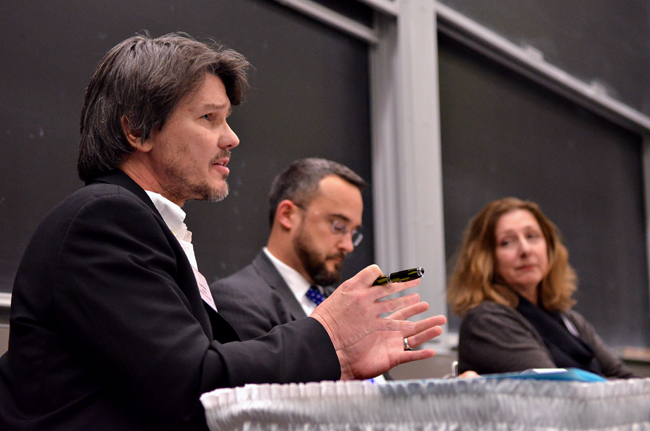Putting regulations on corporate speech might indirectly threaten private citizens’ right to free speech, according to KUT journalist David Brown, a panelist in a discussion Thursday about limits on commercial speech.
The panel, which was hosted as part of the Dialogues on Free Speech Series, introduced different topics of commercial speech, such as the relationship between free speech and truth in advertising. The speakers, who included journalists, professors and attorneys, used experiences from their fields to present their perspectives on how commercial speech can change the way people express themselves.
People, similar to corporations, are guilty of trying to sell certain images of themselves through social media sites, Brown said.
“Attempts to regulate the internet will ultimately end up squashing our speech,” Brown said. “People like the idea because it seems to be a slap in the face to big corporations, but I feel that this idea will be bad for free speech.”
Businesses producing false advertisements has become a major problem, according to panelist Tamara Piety, law professor at the University of Tulsa. She said she believes when companies try to claim they are cruelty-free or organic, it is difficult for consumers to verify their statements.
“Some regulations are starting to change, and I think in a bad way, to make commercial advertising more protected the way regular speech is protected,” Piety said. “You can’t say false things to sell your product, and that shouldn’t seem controversial or problematic.”
Dance junior Lizzy Tan, who attended the event, said her interest in the discussion stemmed from wanting to know more about free speech in relation to the University and the honor code, rather than in relation to commercial speech.
“I think one thing that comes up is the University honor code to uphold the values of integrity and fairness,” Tan said. “My critique on the way the University is run or a professor I don’t like raises a gray area on whether I could be punished for my opinion, and I think that sort of speech involves all students.”





















